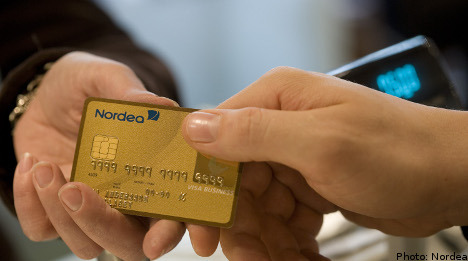One of the latest companies to make the move to cards only was Swedish telecom operator Telia, which recently put a complete stop to cash in its 80 shops nationwide.
The most common arguments for switching from cash to card are that using hard currency can be a threat to staff safety, can be complicated, and can prove expensive.
Another example of a cashless store is bedding manufacturing chain Kungsängen, which cut out cash at all 37 of its stores on September 30th this year.
“We want to ensure the safety of our staff,” said Robert Uggla of the company to the Metro newspaper.
Meanwhile the Riksbank, Sweden’s central bank, is in the process of preparing for the 2015 introduction of updated bank notes into the Swedish currency system.
“We don’t think cash will disappear in the foreseeable future,” explained the Riksbank’s departmental chief Christina Wejshammar to the paper.
“As long as it exists, and people want to use it, then it’s important that it’s good and safe and the bank notes need to be updated.”
However, a spokesperson for trade group Svensk Handel claimed that Swedish stores will likely switch to card before the new cash comes into play.
“We’re going to see an enormous cash deposit in the stores when the banks reduce the number of offices and service boxes get harder to access. The risks grow and many shops will choose to opt out of money handling before the shift,” Bengt Nilervall told the paper.
The manufacturing and introduction of the new bank notes will cost consumers an estimated 700 million kronor ($105 million), according to Metro.
TT/The Local/og



 Please whitelist us to continue reading.
Please whitelist us to continue reading.
Member comments